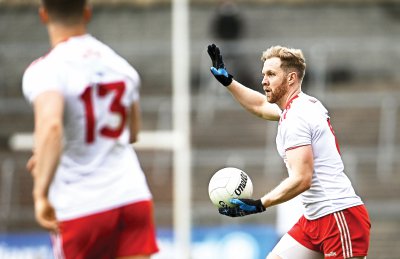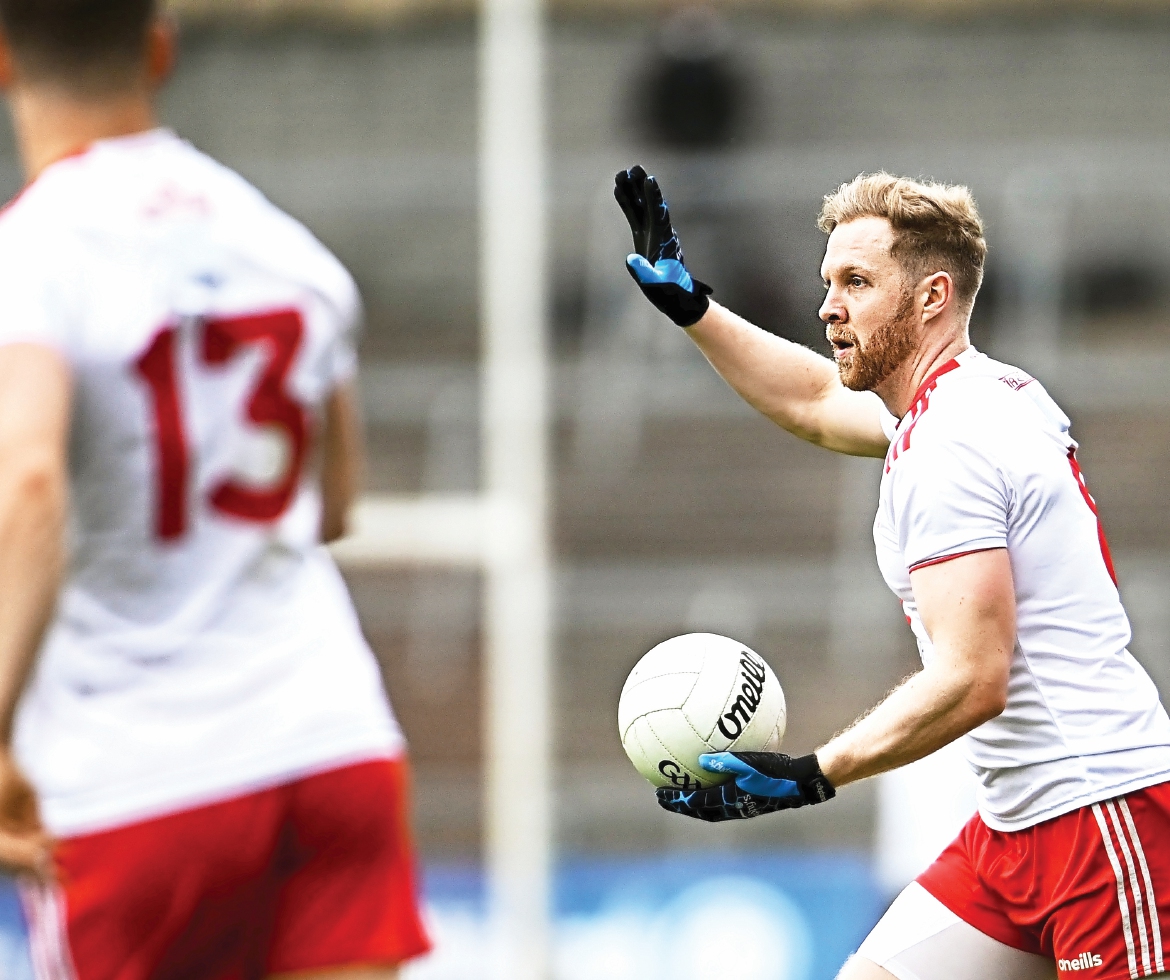- I WAS listening to Antrim manager Enda McGinley on the radio during the week and he shared a lot of his frustrations regarding aspects of the new rules.
- We have a brilliant brand in Gaelic football and I have consistently said that like all team sports and invasion games, tactically it evolves and we have an era now with a mix of high-pressing and counter-attacking football.
- To label a team who have a defensive platform as proponents of the blanket defence is lazy punditry and poor analysis, in my opinion.
- Even the best team in the country will at times manage the game by filtering a lot of bodies goalside and defending deeper for periods of the game. Equally you will find periods when they will press hard and try to turn teams over in their own half.
- Lots of sides are using kick-outs as a great opportunity to organise and place a press on their opposition, and this, in turn, is leading to teams being a little bit more exposed defensively. This is why we are seeing so many high-scoring games.
- We don’t need to start playing around with the rules because at the moment the mark rule is a shambles. It’s actually turning the game into a hybrid type of sport. Sideways 20-metre punt passes under zero pressure are being rewarded and it’s all becoming very whistle happy.
- A lot of coaches and managers up and down the country will probably share some empathy with my column this week. The frustration of watching different referees and their interpretation of the new rules within our game is infuriating.
- A referee in an intercounty game has three other fully-qualified officials assisting him and it’s important to remember that umpires are generally only friends and family of the referee and carry few qualifications on rules or decisions. The linesmen and fourth official have though and I think they should be used more often, particularly on contentious decisions.
- A linesman’s role is to police sideline balls and mark free kicks and 45s. Could they not operate on either side of the field a couple of yards in from the sideline, which would allow them to still call line balls but more importantly take an active role, particularly when assisting the new mark rule or the new goal-scoring cynicism rule? I think that last rule is also a disaster for our game.
- We are introducing all these new rules for referees to try and interpret and yet one of the most contentious rules refereed is one that currently exists, the interpretation of the tackle.
- When I attend a football match, I want to see the game flow; I don’t want the whistle to blow multiple times in the first 15, 20 minutes. It ruins the game as a spectacle and leaves everyone frustrated – managers, supporters and most importantly players.
- Ask players how they want a game refereed and they will all tell you that they want a referee who keeps a consistent flow to the game and not one who is extremely overly fussy. We have got to remember, Gaelic football has got clearly defined rules but it is also a game in which contact regularly happens and it is one of the most admirable aspects of our game.
- Regarding the issue of tackling, it’s the inconsistencies that exist that really frustrate everyone. Some coaches and managers might not be aware of this, but there is an actual definition in the GAA for tackling which reads:
- “The tackle is a skill by which a player may dispossess an opponent or frustrate his objective within the rules of fair play. The tackle is aimed at the ball, not the player. The tackler may use his body to confront the opponent but deliberate bodily contact (such as punching, slapping, arm holding, pushing, tripping, jersey pulling or a full frontal charge) is forbidden. The only deliberate physical contact can be a fair charge i.e. shoulder-to-shoulder with at least one foot on the ground. More than one player can tackle the player in possession.”
- Reading the above definition does leave the whole debate of what is a legitimate tackle very open and one person’s interpretation of a legitimate tackle could be very different to another person’s opinion, and for a referee to have to make an instant decision in real time is obviously very difficult. We must share some sympathy for those in the middle with the whistle because it’s becoming an increasingly difficult job.
- One thing is for certain, I personally disagree with the view from some that the tackle can’t be coached. Mentors can coach the tackle within their training sessions but problems occur when coaches ‘let things go’ in training and subsequently these bad habits are carried into a game.
- This is why when coaching the tackle in training it is imperative that any clear fouls, which according to the above definition include punching, slapping, pulling, tripping or frontal charging, are punished and explain to the players clearly where they are going wrong. Otherwise players will feel this is fine.
- We need to look at the way teams are now systematically fouling in their own forward line and not allowing opposition teams to build, this is the real cynical side of the game.
- A one-off mistimed late tackle in the heat of the moment is punished so much harder than a systematic string of tactical fouls that we see every week. It’s time to start addressing the real issues.

22 May 2021; Frank Burns of Tyrone calls for a ‘mark’ during the Allianz Football League Division 1 North Round 2 match between Armagh and Tyrone at Athletic Grounds in Armagh. Photo by Ramsey CardySportsfile













